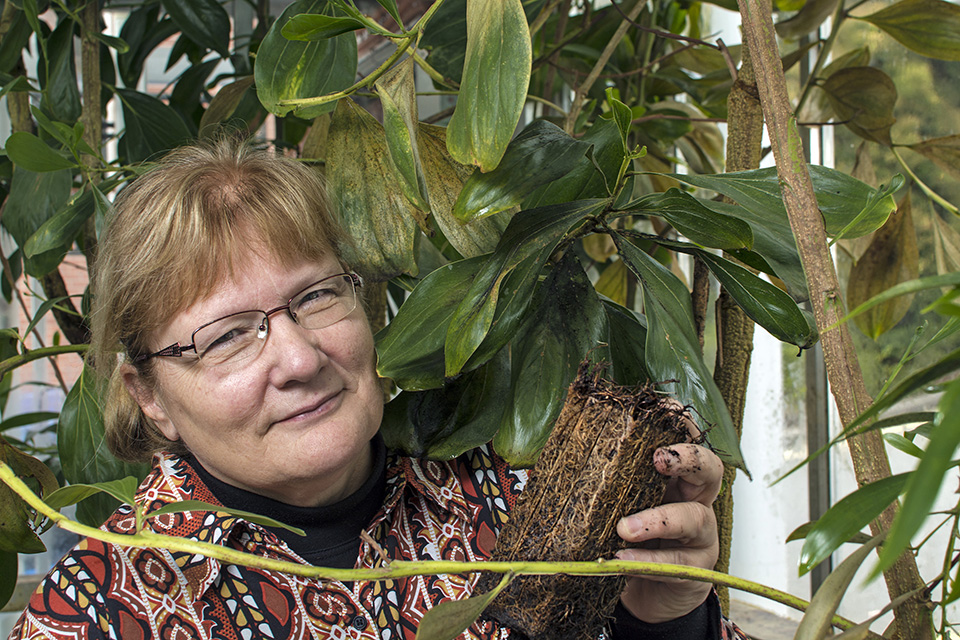One of the notable and welcome changes over the past 60 years has been the steady increase in the number of women electing to study and work in agricultural science.
Graduation photographs from the early years of Agricultural Science at the University of Tasmania show a male-dominated student cohort. Nowadays, the student population is much more diverse, and data provided by the University of Tasmania shows a significant increase in female participation in agriculture, environment, and related courses over the past 30 years.
In 1991, agriculture, environment and related courses attracted 35% more males than females. This figure has changed dramatically and in 2023 female students make up just over half of the student cohort.
TIA supports a diverse student and staff cohort. We are proud to have an active Inclusion, Diversity and Equity (IDE) working group that promotes a culture that values and supports diversity among our staff, students and stakeholders.
We recognise that increasing diverse and inclusive engagement in science, technology, engineering and mathematics (STEM) will benefit our agricultural industries and the economies and workforces that underpin them.
Professor Caroline Mohammed
Caroline is Centre Leader for the Agricultural Systems Centre at the Tasmanian Institute of Agriculture (TIA) and Deputy Director of the TAS Farm Innovation Hub.
In 2018 she became the first female Professor of Agriculture at the University of Tasmania.
Caroline grew up in the United Kingdom in South London where she had a glasshouse from the age of 11 but wasn’t set on agriculture until it was time to go to university.
“My mother used to find sprouting conkers (horse chestnuts) in my drawers. I was interested in everything and I was not particularly a scientist, in fact I was top in art. It was the adventure of studying abroad that led me to agriculture,” she said.
Caroline left home at the age of 18 to study tropical agriculture at the University of West Indies in Trinidad where she met her partner and started a family. She graduated with a degree in tropical agriculture in 1974, then spent the next 10 years working in Trinidad as a plant pathologist, where she said it wasn’t always easy working within a male dominated Caribbean culture.
“I was the only white person on campus. It was a completely different culture compared with anything I could have expected. There were some other women in my degree, however they considered the man to be the boss in a partnership,” she said.
“It was also a challenge coming into a country to study agriculture when all the crops were foreign. Everything was different.”
Caroline’s husband then got a scholarship in Europe, so the family moved to France where they welcomed their second child. Caroline supported the family by teaching English after learning French herself, by watching French television and being emersed in the culture.
Caroline then started her PhD in French at the University of Clermont-ferrand on plant pathology which she completed in 1987.
“When I went to lectures in France, I didn’t understand a word. I had to photocopy lecture notes and work it out from that. That’s why I have a lot of empathy for foreign students who come to study at TIA,” she said.
“It took me a long time to complete my PhD as my ex-Husband left at that point, so I was a single mother with two jobs and two children.”
After completing her PhD, Caroline and her two sons moved back to the United Kingdom where she worked at the University of Oxford from 1989 to 1993 leading projects in Italy, Germany, France, Zimbabwe, Kenya and the Congo. Caroline arrived in Tasmania in mid-1995 to accept a co-funded position between CSIRO and the University of Tasmania and has since been actively involved in forest health and pathology research.
Caroline is a pioneer of new areas of science, such as exploring host defense responses in eucalypts, the development of a biocontrol to a tropical fungal pathogen, modelling the impact of pest and diseases as climate changes, investigating the potential of potatoes in Kenya and Tasmania and developing a whole farm systems game.
Since 1996, Caroline has supervised five postdoctoral fellows, 22 postgraduates and eight honours students. She is trained as a translator and has been involved in teaching English to non-English speaking students at TIA.
Caroline has been the chair of the College of Science and Engineering Inclusion, Diversity and Equity committee for the last five years.
“Challenges for women still exist and there is a long way to go. Over the last five years, there’s been massive improvements in terms of awareness, people and wellbeing. There have been lots of positive changes, although our stats still show that we have a gender imbalance,” she said.
“We need to encourage more women to have their family life and children and still have a career. We want diversity across all areas, not just gender diversity.”



